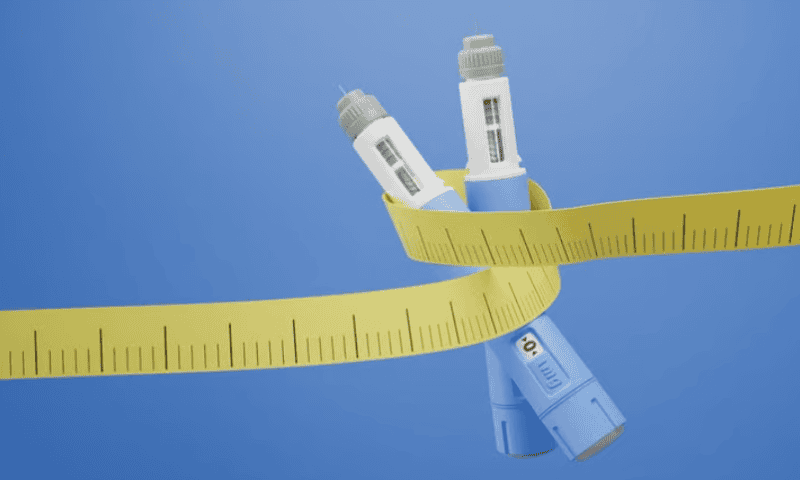Recently debuted Metsera is unfolding some phase 1 data for its GLP-1 receptor agonist, revealing a 7.5% reduction in body weight compared to baseline at 36 days.
While the biotech has yet to unveil a more detailed data set, the injection, dubbed MET-097, was tied to “significant and durable” weight loss, according to a Sept. 24 company release.
A total of 125 nondiabetic adults who are either overweight or obese are participating in the ongoing trial. Patients received an initial dose ranging from 0.16 mg to 1.6 mg and, afterward, weekly doses ranging from 0.2 mg to 1.2 mg given five times without titration.
Weight loss depended on dose level, with 7.5% reduction compared to baseline seen at Day 36 for those in the 1.2 mg/weekly group, the biotech said. The measure was taken one week after the final dose was given and is “consistent with or better than approved and clinical-stage GLP-1/GIP compounds,” Metsera claimed.
The results echo Roche’s oral GLP-1 prospect CT-996, which was linked to a similar weight loss of 7.3% after just four weeks.
The timescales used for weight loss drug trials vary widely, meaning direct comparisons are always tricky. When it comes to the approved market leaders, Novo Nordisk’s blockbuster GLP-1 agonist Wegovy achieved 14.9% average weight reduction in the 68-week STEP-1 phase 3 trial, while another study called OASIS showed 15% weight loss over the same period. Meanwhile, Eli Lilly’s dual GIP/GLP-1 agonist Zepbound was shown to induce 22.9% weight loss over the far longer time frame of 176 weeks.
For patients receiving Metsera’s investigational injection at the 1.2-mg dose, weight loss continued after 36 days, with an 8.1% cumulative weight loss at Day 57, or four weeks after the final dose, the biotech said in today’s release.
MET-097’s half-life—or the time it takes for the drug’s active ingredient in the patient’s body to reduce by half—was 380 hours, according to Metsera.
“The phase 1 data show that our proprietary HALO technology platform clearly confers ultra-long product half-life in people, validating the science underlying the Metsera discovery platform,” Chief Scientific Officer Brian Hubbard, Ph.D., said in the release.
“Based on these strong results, we believe we can produce a series of nutrient-stimulated hormone (NuSH) analogs with half-lives between 2-3-fold longer than the current marketed and investigational peptide NuSH analogs, and on par with antibody conjugated NuSH analogs.”
As for safety, gastrointestinal adverse events were dose-related and mostly mild, according to the biotech. No severe treatment-related adverse events or treatment-related study drug discontinuations were recorded.
Despite the trial testing a weekly dosing regimen, Metsera said its new phase 1 data support a once-monthly dosing schedule.
Monthly dosing is supported by the observed half-life, which is “the longest to date” of any peptide GLP-1 construct and on par with that of antibody-peptide conjugates such as Amgen’s candidate MariTide, a company spokesperson told Fierce Biotech over email. The planned dosing regimen is also supported by the four-week follow-up that showed durable and increasing weight loss at 57 days, the spokesperson said.
Metsera will be sharing a more detailed look at the data in the future, according to the spokesperson.
The early-stage results “position MET-097 as an ultra-long acting, potent, yet well tolerated GLP-1 drug candidate,” according to Metsera Chief Medical Officer Steve Marso, M.D.
“Importantly, these data suggest the possibility for no titration and once monthly dosing, which may result in a more convenient, more scalable and better-tolerated way to administer GLP-1 medicines,” Marso said.
Metsera plans to launch a phase 2b trial for MET-097 this year, with data expected in the first half of 2025.
The company unveiled in April as one of a growing crop of biotechs aiming to usher in the next generation of obesity and metabolic disease medicines. Founded in 2022 by Population Health Partners and Arch Venture Partners, Metsera has raised $322 million to date and is led by CEO Clive Meanwell, M.D. The leader has an extensive industry track record, including founding and leading The Medicines Company, a biotech that homed cardiovascular medicine Leqvio and was acquired by Novartis in 2019 for $9.7 billion.
Metsera’s preclinical pipeline also includes a dual amylin/calcitonin receptor agonist (DACRA) designed to be combined with MET-097, a unimolecular GGG (GLP-1, GIP, glucagon) engineered for combo use with the DACRA and two IND-ready candidates sourced from the company’s oral peptide delivery platform.
“The aim is to develop a suite of molecules that are miscible, or multi-target, molecules that give you the advantages of increased effect with less side effects,” Meanwell told Fierce back in April. “We think the future is combinations, and we want to be there.”

